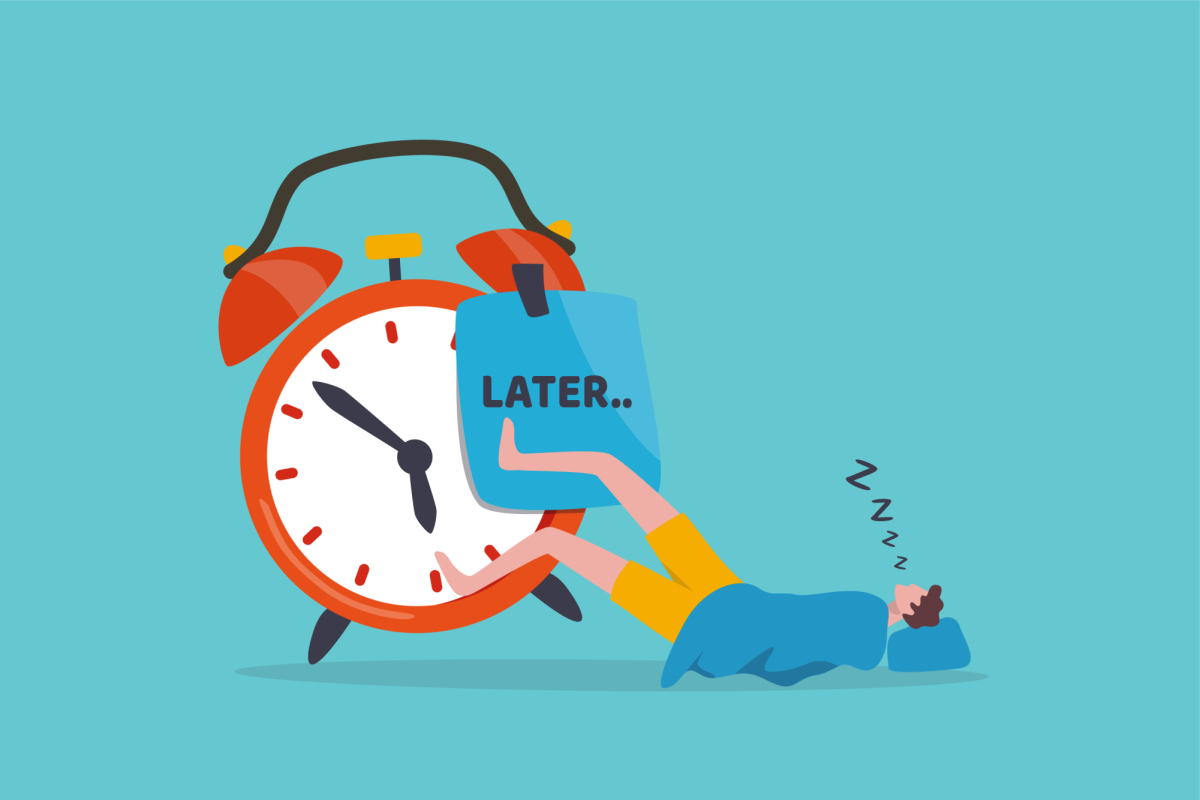It’s 10 pm, and you finally decide to work on your English essay that’s due tomorrow. Despite having two weeks to work on it, you put it off to the last minute and procrastinated. Procrastination is a ticking bomb in the lives of many teenagers. The longer you wait, the more pressure and stress that builds up, potentially leading to a negative outcome. Why do we do this, and how can we prevent it?
Procrastination often comes with a sense of perfectionism. The stress and pressure that comes from the need to be perfect makes procrastination an easy solution to avoid it. Teens may be afraid of not meeting expectations, which leads them to postpone tasks and avoid the possibility of failure. They could also feel a heavy burden on their shoulders when trying to juggle multiple tasks, extracurriculars, commitments, and more.
Procrastination allows teens to avoid tasks that provoke negative emotions such as boredom, anxiety, and frustration. It allows them to easily ignore these emotions, in order to feel better. While we could be enjoying avoiding those tasks in the moment, it won’t be worth it in the long run once those tasks pile up.
Distractions play a huge role in why teens procrastinate. The existence of digital distractions can cause teens to divert their attention away from their responsibilities. This includes things like social media and gaming as these things can be very addicting.
There are many ways that we can slowly start to break away from procrastination. This includes:
- Breaking Down Tasks: By breaking down tasks into more manageable steps, it will ease off the feeling of stress of having to do it all in one go.
- Minimizing Distractions: Setting screen time or muting notifications will help us stay focused on our task and not feel inclined to check our phone or go on it.
- Staying Organized: Actions like writing down assignments in a planner, or setting reminders all can help us stay organized and keep track of our tasks.
- Creating a Focused Environment: By finding a quiet place, free of distractions, will help us be more successful when completing tasks.
- Setting goals: Setting our own achievable deadlines and goals can help take away tension.
All of these tips can help break the cycle of procrastination and help us avoid it. The next time you find someone else or even yourself procrastinating, remind them of the long term effect and how they can prevent it using these tips.

